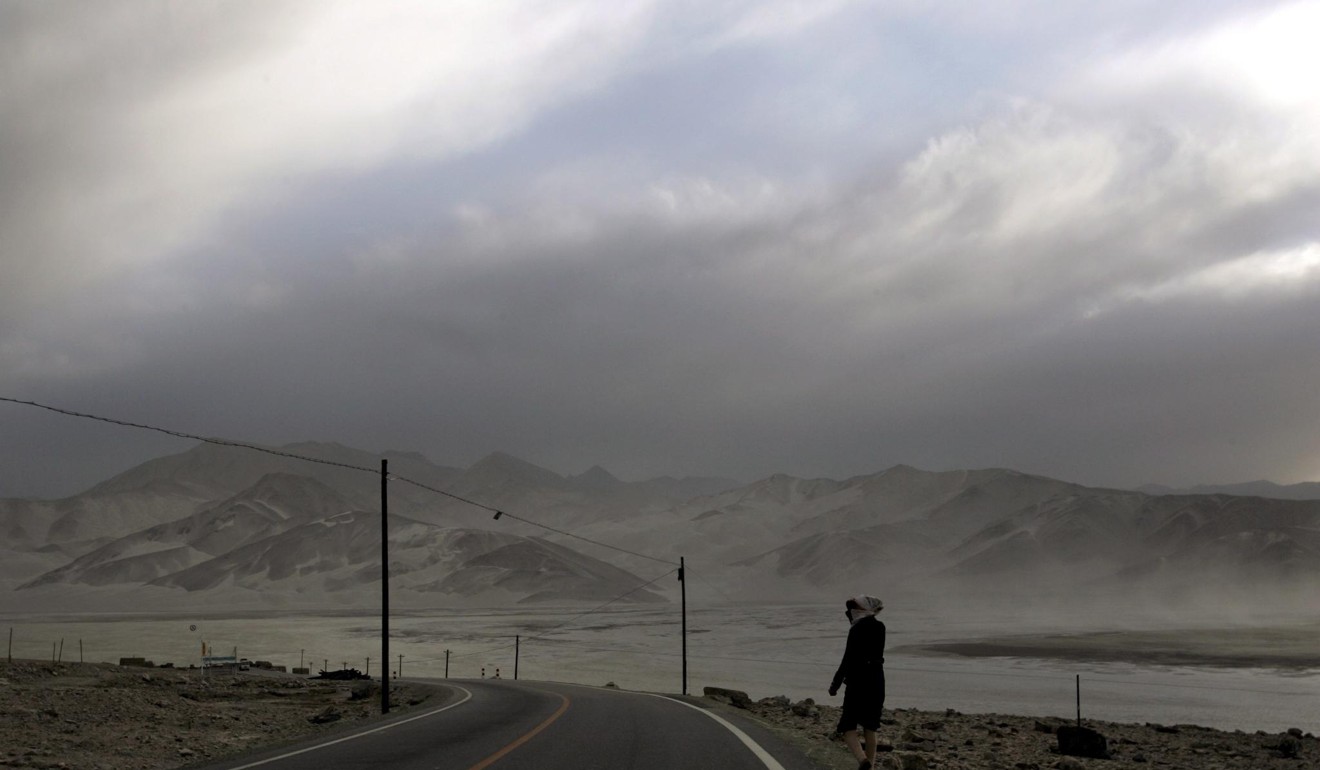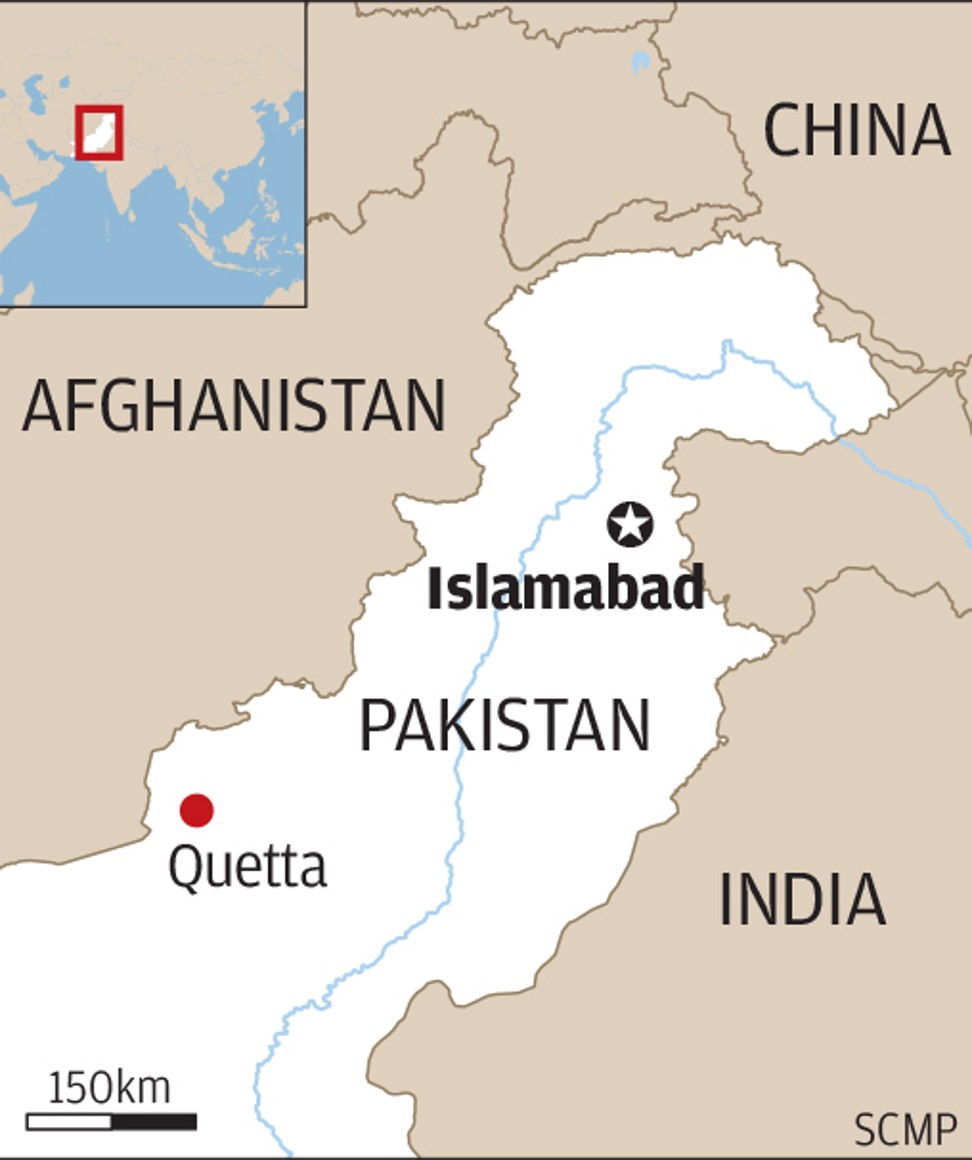
Two Chinese kidnapped in Pakistan in sign of Silk Road perils
Armed men take couple into custody in Quetta city, police say, but no group has taken responsibility
Two Chinese teachers were kidnapped on Wednesday in a remote region of Pakistan, a dangerous but important part of Beijing’s new Silk Road, according to state broadcaster CCTV.
The couple taught Chinese at a language centre in Jinnah town in Quetta, the capital city of southwestern Baluchistan province.
Militants with guns abducted the pair, dragging them into a vehicle and then driving away at about noon, the broadcaster quoted the Chinese embassy in Pakistan as saying.
“Armed men took the couple into custody at gunpoint when they were coming out from the centre,” said Razza Cheema, Quetta’s police chief.
He added that another Chinese woman narrowly evaded the kidnappers outside of the language centre.
No group has claimed responsibility for the kidnapping, but in the past Islamist militant factions have kidnapped foreigners inside Pakistan for a ransom or to get publicity for their cause.
Provincial Chief Minister Nawab Sanaullah Zehri ordered local police to investigate and rescue the hostages, and Chinese consulates in Pakistan were also responding to the incident, according to CCTV.
The number of Pakistani students studying Putonghua has skyrocketed since 2014, when President Xi Jinping signed off on plans to fund the construction of power and road infrastructure in the country as part of the US$46 billion China-Pakistan Economic Corridor
The kidnapping comes just two weeks after Xi convened a summit with some 30 state and government leaders in Beijing, including Pakistani Prime Minister Nawaz Sharif, to promote China’s “Belt and Road Initiative” for reviving ancient trade routes along the Silk Road.
Baluchistan is in the centre of the China-Pakistan corridor, the biggest single project under the belt and road banner. Roads, railways and gas pipelines are planned to link China’s far west hinterland of Xinjiang to the China-operated port of Gwadar on Pakistan’s southern coast.

But the region is also seeing frequent violence from Islamic militants and separatists, and the belt and road projects have caused controversy among locals and attacks against construction workers.
Suspected militants last Friday gunned down three Pakistani workers building a Chinese- funded highway in Baluchistan, just days after a similar attack on May 12 that killed 10.
While China is boosting its economic presence and investment in belt and road countries, many of which are plagued by unrest, Beijing is reluctant to send military or security forces to ensure the safety of these projects.
It has instead mainly relied on host-country governments to provide protection. But in places like Quetta, which is close to the border of Afghanistan, the protection provided by Islamabad is often limited.
In 2004, two Chinese hydro engineers were kidnapped by local militants and one was killed. In 2015, a Chinese tourist was released by the Taliban after being held hostage for a year.
It was not immediately clear if the teachers kidnapped on Wednesday were in Pakistan on behalf of the Chinese government or one of the many state-owned enterprises working out of the country.
Additional reporting by Reuters


